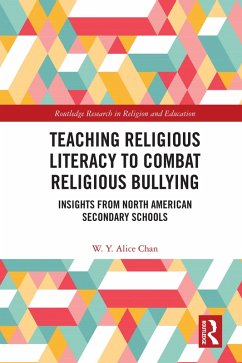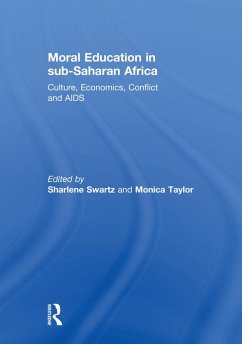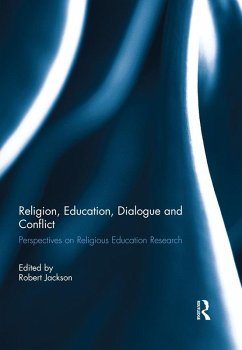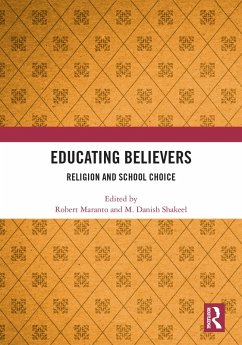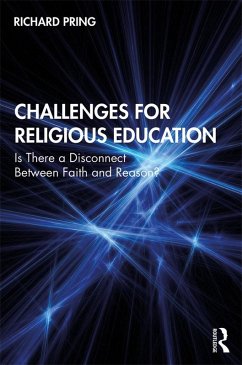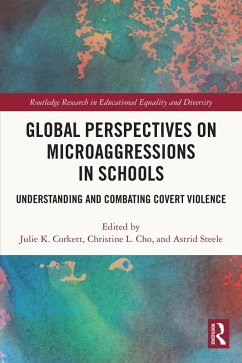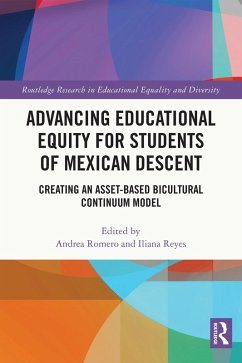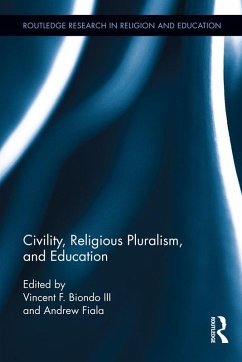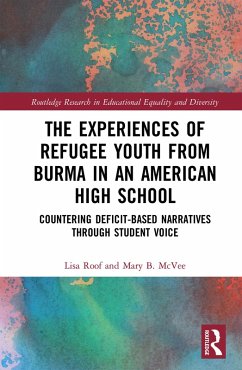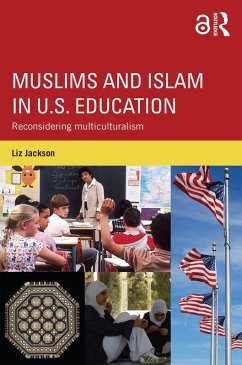
Teaching Religious Literacy to Combat Religious Bullying (eBook, PDF)
Insights from North American Secondary Schools
Versandkostenfrei!
Sofort per Download lieferbar
37,95 €
inkl. MwSt.
Weitere Ausgaben:

PAYBACK Punkte
19 °P sammeln!
This text explores the phenomenon of religious bullying as it manifests in two North American contexts and theorizes religious literacy as a viable school-based intervention to promote understanding of religious and non-religious difference.Using substantive, qualitative data from schools and communities in California and Quebec, Teaching Religious Literacy to Combat Religious Bullying examines the impact of mandatory religious literacy courses delivered in secondary schools and identifies curricula, teacher attitudes, training, and administrative support as key determinants of course impact. ...
This text explores the phenomenon of religious bullying as it manifests in two North American contexts and theorizes religious literacy as a viable school-based intervention to promote understanding of religious and non-religious difference.
Using substantive, qualitative data from schools and communities in California and Quebec, Teaching Religious Literacy to Combat Religious Bullying examines the impact of mandatory religious literacy courses delivered in secondary schools and identifies curricula, teacher attitudes, training, and administrative support as key determinants of course impact. Drawing on Bronfenbrenner's social-ecological framework, the text then illustrates how the environmental factors both in and outside of the school considerably influence teacher and student attitudes to religious and non-religious traditions. Practical recommendations are made to combat overarching societal trends and religious discrimination within the classroom, and context is cited as key to an effective discussion on religious literacy more broadly.
This text will benefit researchers, academics, and educators with an interest in religious literacy, religious education, the sociology of education, and those looking at the field of bullying and truancy more widely. Those interested in intersectionality, marginalized communities, secularism, and educational policy will also benefit from the volume.
Using substantive, qualitative data from schools and communities in California and Quebec, Teaching Religious Literacy to Combat Religious Bullying examines the impact of mandatory religious literacy courses delivered in secondary schools and identifies curricula, teacher attitudes, training, and administrative support as key determinants of course impact. Drawing on Bronfenbrenner's social-ecological framework, the text then illustrates how the environmental factors both in and outside of the school considerably influence teacher and student attitudes to religious and non-religious traditions. Practical recommendations are made to combat overarching societal trends and religious discrimination within the classroom, and context is cited as key to an effective discussion on religious literacy more broadly.
This text will benefit researchers, academics, and educators with an interest in religious literacy, religious education, the sociology of education, and those looking at the field of bullying and truancy more widely. Those interested in intersectionality, marginalized communities, secularism, and educational policy will also benefit from the volume.
Dieser Download kann aus rechtlichen Gründen nur mit Rechnungsadresse in A, B, BG, CY, CZ, D, DK, EW, E, FIN, F, GR, HR, H, IRL, I, LT, L, LR, M, NL, PL, P, R, S, SLO, SK ausgeliefert werden.




